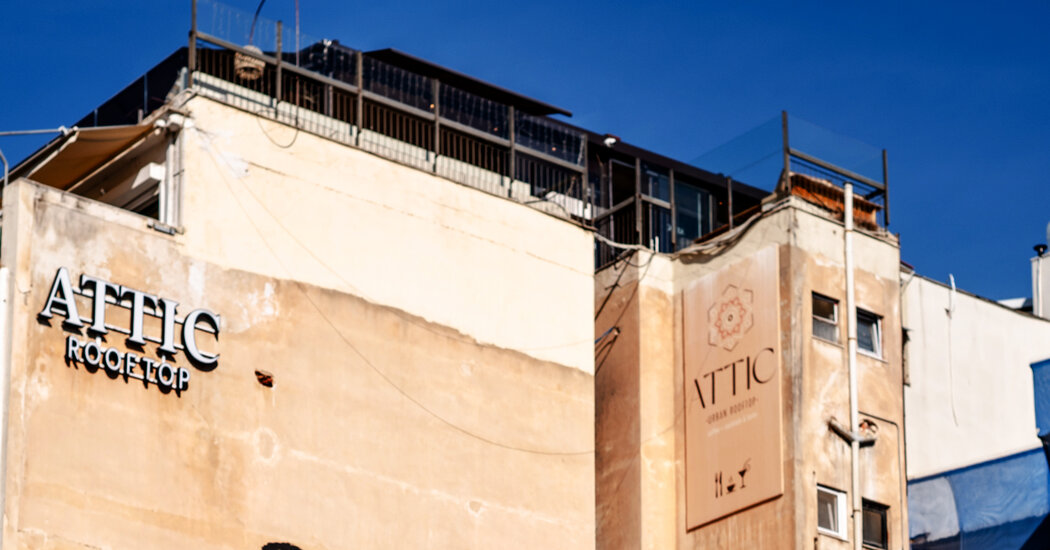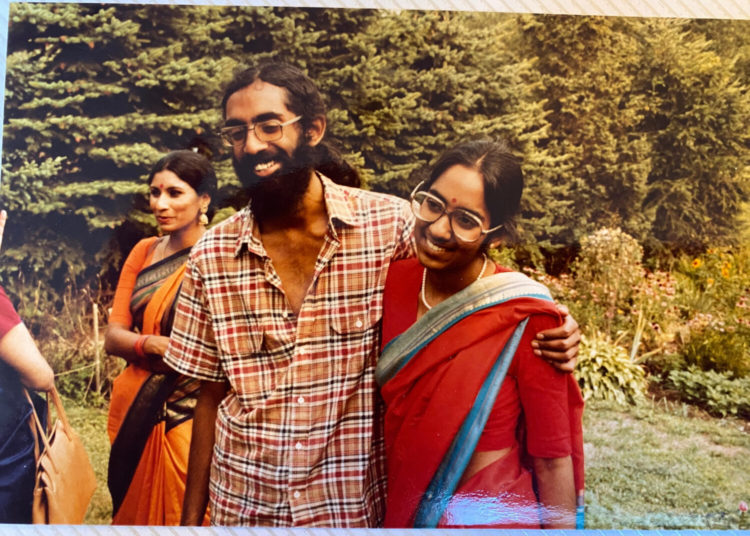I arrived in Athens for the first time last May with visions of alabaster architecture and picturesque avenues. But when I arrived in Petralona, the central neighborhood where I was staying, I found vacant storefronts, broken sidewalks and crumbling, graffiti-covered buildings.
The more I explored, the more I wondered why parts of this ancient city had come to convey urban decay rather than classical charm.
A tour of the Acropolis would most likely not provide answers. Searching on Airbnb Experiences for something more relevant, I found the Athens Social and Political Walk. Its tagline: “How did the ‘cradle of democracy’ become the ‘basket case of Europe’?” I signed up.
I met the guide, a 35-year-old Spanish-born political scientist named Isaac Caballero Suey, and five other participants near bustling Omonoia Square. Mr. Suey, who had close-cropped hair and glasses, started off by explaining that contemporary Athens has almost nothing in common with the Ancient Greece of Aristotle. These days the city is a petri dish for pretty much every major postmillennial social ill — gentrification, wealth disparity, refugee and immigrant crises, and infrastructure decay.
With tourism putting pressure on vacation hot spots like Athens, Buenos Aires, Mexico City and Rio de Janeiro, experiences like Mr. Suey’s are drawing curious visitors. They offer a counterpoint to traditional tourism narratives and a way to learn about the tensions affecting the people who actually live in these places.
Glimpses of an Unseen City
For three hours, Mr. Suey led us through parts of the city most travelers would ignore or avoid — where abandoned schools and dingy apartments abutted high-rise hotels, and empty arcades concealed vacation rentals.
He gave us a glimpse of the world inhabited by mostly unseen Athenians, including immigrants and squatters. He connected these locations to issues like corruption, cultural displacement and politics, and shared enlightening stories of grass-roots organizing and mutual aid.
The tour scrambled my preconceptions, leaving me with an appreciation for Athens as it was rather than as I had imagined it. I wasn’t the only one.
“The more traditional tourist narratives feel dismissive of the people who live in these places, like they’re not important, and it’s no surprise that places like Athens have struggled to find a modern identity because of this,” said Peter Allen, a 38-year-old software engineer from Liverpool who was also on the tour.
Mr. Allen, who could be described as a digital nomad, slots into the typical Athens Social and Political Walk demographic, Mr. Suey said: left-leaning frequent travelers, mostly from major cities. “Professors, people of social sciences, politics, economics, but also a lot of tech people,” he explained. “I could even tell you they love the brand Patagonia.”
Mr. Suey, who also offers tours like Understanding the Refugee Crisis and the Greek LGBTQ History Walk, noted that most bookings are last-minute, suggesting that curious tourists may seek out his distinctive analysis only after they’re exposed to the official “This is Athens” visitors’ guide.
“My goal is to give you an image of what’s going on in the country, and this is not what tourism boards are interested in,” Mr. Suey said. “I see myself as a political scientist, and what I do is like a documentary.” It is also a business. My tour cost 32 euros, or about $37.
Encouraged by feedback from participants, he started a company called Planetwonk to bring similar tours to destinations like Buenos Aires, Manila, Mexico City and Rio de Janeiro.
Beyond ‘Tequila Tours’
Mr. Suey put me in touch with his partner in Mexico City, a 27-year-old graduate student of art history named Gustavo Sánchez. When he responded to Mr. Suey’s job posting on LinkedIn last year, Mr. Sánchez was working as a traditional, federally credentialed guide doing “tequila tours, very mariachi, very stereotypical,” he said in a phone interview. “Those tours are fun, but if we only do those, we’re exoticizing the country. We’re hiding the problems.”
Tensions have recently been rising in Mexico City as well-heeled tourists and remote workers have driven up the cost of real estate and food prices, and demonstrations erupted last summer.
Well versed in Mexico City’s history of corruption and protest, and with Mr. Suey’s guidance, Mr. Sánchez created the Mexico City Social and Political Tour (€34). Mr. Sánchez takes his guests — primarily students, journalists and nonprofit workers — to places like La Merced, the neighborhood that’s home to Mexico City’s largest market and has struggled with government neglect, and Plaza Tlaxcoaque, the site of a former secret prison where dissidents were tortured, which now hosts a large encampment of homeless people.
“Other guides believe we shouldn’t talk about the bad things happening here. I think that’s unethical,” he said, noting that to his knowledge he’s the only guide in the city leading tours of this type. “I love Mexico City. I’ve studied its history. When you love a place, you can criticize it, because you want it to change.”
These types of tours offer an alternative to the crowded predictability of social-media-driven tourism, but they existed long before Instagram and its peers. The Catalonian artist and writer Joan Brossa organized a one-night-only “anti-tourism” tour of Barcelona in 1979.
More recently, in Portugal, Bruno Gomes started We Hate Tourism Tours in 2008, during a painful economic downturn. A skater and surfer, Mr. Gomes used to schlep visiting friends around Lisbon in his van, skipping popular destinations for his personal favorites and planting the seeds of his current company. Today, along with a staff of eight, he offers tours like We Hate Landmarks and Real Life Suburbia, starting at €47 a person. Mr. Gomes and his team still bypass popular sites like the Moorish Castle in Sintra in favor of less-visited alternatives of guides’ choosing.
“I’m a designer and an artist,” Mr. Gomes said. “My colleague, she’s a journalist. We have an engineer. We have a musician. No one really has anything to do with tourism. We just share what we love.”
Space for ‘Anti-Tourism’
Traditional tour operators in Athens and Mexico City don’t seem to mind the competition. Representatives from the nonprofit operator This Is Athens and El Taco Club, a service in Mexico City that employs 80 guides and hosts thousands of guests annually, both used the term “complementary” to describe the nontraditional experience these so-called anti-tourism tours provide.
The common spirit behind these experiences is an urge toward counterprogramming, but they can diverge in their approach to doing business. In fact, some are not businesses at all.
Kyle Kajihiro, a University of Hawaii professor of ethnic studies, has spent more than 20 years leading informal tours of Oahu, mostly for friends and colleagues, that challenge the erasure of Native Hawaiians by American colonialism and military expansion. He calls these outings DeTours.
Dr. Kajihiro does zero marketing for DeTours, nor does he charge for them, and they’re not really targeted at the general public. Instead, when interested people reach out, he screens them to gauge their commitment to Native Hawaiian issues like land rights and food sovereignty. DeTours, he says, are not a commercial venture but rather a way to connect like-minded activists.
“I think there’s a market for alternatives that are less ethically problematic, that even feel affirming of certain values people have. And there’s a need to have a different kind of story being told,” he said. “But I’m troubled by the way that even good intentions can become a commodified experience.”
The notion of anti-tourism tours may seem contradictory, but according to Anu Taranath, a faculty member at the University of Washington and the author of “Beyond Guilt Trips: Mindful Travel in an Unequal World,” embracing the full breadth of these tours — from Mr. Suey’s expansive approach to Dr. Kajihiro’s strategic exclusivity — could help drive a necessary shift in travel habits.
“We need to operate on all levels,” Dr. Taranth said. Anti-tourism “isn’t antithetical to tourism, but our definition of tourism should open up.”
“None of those are simple conversations to have,” she added, “but I’m seeing people wanting to understand where we are and how we got here, and what it means to do something different.”
Follow New York Times Travel on Instagram and sign up for our Travel Dispatch newsletter to get expert tips on traveling smarter and inspiration for your next vacation. Dreaming up a future getaway or just armchair traveling? Check out our 52 Places to Go in 2025.
The post Sick of Feeling Like a Tourist? There’s a Tour for That. appeared first on New York Times.




